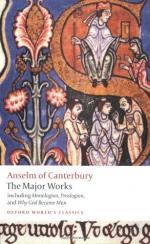|
This section contains 8,070 words (approx. 27 pages at 300 words per page) |

|
SOURCE: Feiss, Hugh. “The God of St. Anselm's Prayers.” American Benedictine Review 36, no. 1 (March 1985): 1-22.
In the following essay, Feiss surveys Anselm's Trinitarian theology as it appears in his devotional writings.
St. Anselm was a monastic theologian, insofar as the context of his life and thought was Benedictine, and the principal aim of his thinking and praying was to seek the face of the Lord. One would, therefore, expect to find a close parallel between his thinking and his spirituality.1
In his faith Anselm was untroubled; in his approach to monasticism he was conservative.2 In both his theology and his written devotions he was highly original.3 At home in the old ways in which he had been nurtured, he brought to theological thinking new powers of thought, new ideas, and new methods which set him apart from his predecessors and also from those who came after him.4 His...
|
This section contains 8,070 words (approx. 27 pages at 300 words per page) |

|


